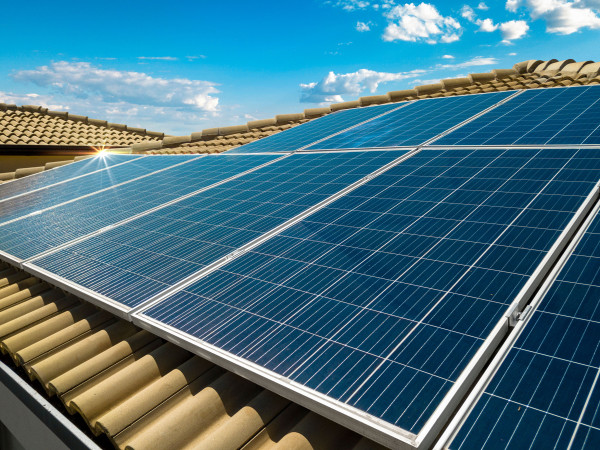Solar energy on your horizon? New guidance being developed to help make smart choices
Residential solar energy benefits consumers and the nation with reduced emissions, reduced pressure on the national grid and a renewable energy source. Where can you go for advice when adopting this technology for your home? A new publicly available specification (PAS) will help provide the answers.

Commissioned by EECA to help inform consumers
The Energy Efficiency and Conservation Authority (EECA) has commissioned the development of a residential solar photovoltaics (PV) and home battery storage PAS. This will contribute towards a suite of good practice guidance including PAS for EV chargers and ‘smart homes’ available on our website and sponsored for free access by EECA.
The unbiased best practice guidance is intended to inform homeowners and installers on the technology, functionality, performance, and installation of solar photovoltaics (solar PV) and home battery systems in New Zealand, expected to be published around June 2025. Consumers will be able to understand why they should consider investing in these technologies and how storage contributes to the demand flexibility of a smart home. Demand flexibility (DF) provides two-way communication between smart devices and flexibility service providers (i.e., electricity distributors and demand ‘aggregators’) dialling energy use up or down in line with user preferences and pricing signals so that it is integrated with the grid, shifting residential demand to times when supply is abundant, clean, and cheap.
Why is this being developed?
Increasing the uptake of connected or ‘smart’ appliances in New Zealand means households can reduce peak demand on the electricity grid, reduce consumer costs and help reduce additional investment in New Zealand’s national electricity network. New Zealanders benefit from less pressure on the grid, which minimises the use of fossil fuel generation to meet peak demand periods. Consumers benefit from energy resilience and independence, and the potential to earn from systems that supply energy to the grid, providing clean renewably sourced energy for others to use.
Consumers and installers require good practice guidance to understand the best available technology and ensure high quality installations. If guidance is not provided so that consumers understand what is best to buy and install, installers may continue to promote and install low-spec technologies and consumers risk poor outcomes with limited DF capability that is not as integrated with the national grid.
Interesting in going solar?
EECA provide a free online tool you can use to assess the viability of your home for solar:
GEN LESS Solar Power Calculator(external link)
The upfront cost of solar PV and batteries is expected to continue to decrease and become more affordable and accessible to New Zealand households. Solar PV and home battery systems are also being assessed by EECA for future regulation.
To keep up to date on the development of this project sign up for a free account on our website and choose ‘energy, electricity and gas’ or ‘environment and sustainability’ in your notification preferences.
